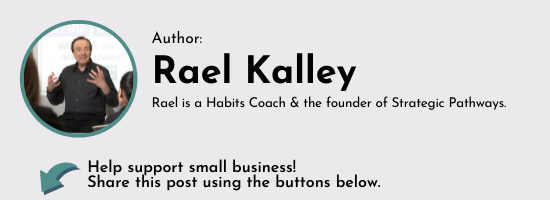I have a client who shared a story this week that reminded me of an old friend whose values I admired very much, and I’d like to share both stories with you.
My client had accompanied her 59-year-old mother to a meeting with an oncologist referred by her family doctor.
Her mother was experiencing troubling symptoms and after much testing, her doctor had gently cautioned her to prepare for bad news.
After a seemingly interminable wait, they were ushered into the oncologist’s office. He was staring at a monitor and did not acknowledge their presence.
After a few minutes he looked up and informed them the diagnosis was terminal, there was little that could be done and she should get her affairs in order and spend as much of the little time she has left with her family.
He was totally clinical, showed no signs of compassion and, after a few minutes, stood up and left the office, telling them a nurse would be by shortly.
My client’s mother described him as being completely void of humanity and was adamant he would not be treating her.
As I listened to her pained description, I could hear the voice of my friend Steve bouncing around in my head.
Way, way back, in April 2011, I told the story of my friend Steve’s experience with a specialist to whom he had been referred.
Here is Steve’s story.
Doctor, Doctor you give me the blues
When we have occasion to visit a doctor, we generally take with us a set of narrowly defined assumptions and expectations regarding the person to whom we are entrusting our health care and possibly even our lives.
Some of those assumptions include:
- An assumption that the doctor possesses the requisite education to address and assist with our medical issues.
- Ditto for knowledge.
- Ditto for training.
- Ditto for skills.
And we expect:
- To receive professional and respectful treatment.
- To be provided high quality care.
- To have our questions answered.
So, I was really interested in listening to my friend Steve relay his recent reasons for “firing” a specialist to whom he had been referred and for whom he had waited 8 months to see.
Steve does not have a very pleasant health history. He has been plagued with ailment after ailment for as long as I have known him and many of his friends are both surprised and delighted that he is still with us.
Steve, on the other hand, takes everything in stride and views each medical setback simply as a challenge to be overcome and defeated.
He is perpetually cheerful, looks for the good in everything and sees life as a precious gift to be enjoyed, savoured and lived to the fullest.
And he was keenly awaiting this appointment so that he could begin and win this newest threat to his well being.
And when the day finally arrived, he fired the doctor.
He didn’t fire him in the sense of handing him a pink slip and saying, “you’re fired.”
It was more a case of getting up midway through the appointment, walking out, driving over to his family doctor’s office and asking her to refer him to a different specialist even if it meant waiting another eight months and risking the worsening of his newest disease.
You see, in addition to all those assumptions and expectations listed above, Steve has one other.
He naively believes that he is not an object but rather a person with feelings, fears, concerns and a strong need to be treated as a human.
Apparently, this doctor, in a manner not uncommon to many in that field, possesses tremendous knowledge and skills, a sterling reputation, the acclaim of his peers and all the interpersonal skills of a doorknob.
When Steve entered his office, the doctor didn’t take the time to greet him.
He didn’t even acknowledge his presence.
His eyes were glued to the computer monitor on his desk.
Without looking up he began telling Steve the seriousness of his condition.
Without looking up he told Steve his prognosis – which was not encouraging.
Without looking up he rattled off a few questions.
Without looking up he told Steve what the course of treatment would be.
Without looking up he interrupted Steve’s attempt to ask questions by telling him not to interrupt.
And because he didn’t look up, he probably didn’t notice when Steve stood up and left.
Steve is very ill. He’s not sure if he can win this one.
He desperately wants and needs medical intervention and help.
But what he wants even more is to be treated with dignity and respect.
And he told me that regardless of how bleak the prognosis may be, and how high the risk of delaying treatment, he was willing to face the consequences of his decision to walk out and wait for an appointment with another specialist rather than allow himself to be objectified, unworthy of respectful treatment.
He told me that by not walking out he would be condoning that behaviour and, at the same time, increasing the probability that behaviour would continue.
And that is a price my friend Steve is unwilling to pay.
He explained to me that there is only one type of business out there.
It’s called “the people business.“
We all need people in order to succeed, prosper and grow.
Position, power, wealth, brilliance and achievement does not give anyone the right to be less than respectful.
Regardless of how much value they can produce.
He said that he has met with many doctors and professionals in other fields and in every group there are those with pitiful people skills.
Because, in Steve’s view, it’s just not important to them.
Also because we allow them to be like that.
He doesn’t think it’s right.
Steve is a customer service aficionado.
He won’t return to a restaurant, regardless of how exceptional the quality of their food, if the service doesn’t match the quality of that food.
He won’t visit a store, regardless of how great their prices, if the staff aren’t friendly and knowledgeable.
He won’t fly on our “national” airline.
He refuses to lower his expectations.
He challenges those who do.
In the medical world, what they have is called a practice.
In other fields it’s called a business.
In the medical world people are called patients.
In the rest of the world people are called customers.
A business cannot survive without customers.
A practice won’t survive when patients lose patience.
Nor should it.
Steve’s right, you know.
Steve unfortunately lost his valiant battle in January 2013. He fought every day and never once deviated from his demands that he be treated with dignity as a human, and not like an object with a serial number.
Steve treated everyone with dignity and respect and was always mindful of the impact one person’s behaviour has on another.
Steve may have lost his battle, but he left behind lessons in humanity that will survive all passage of time.
I miss you Steve. The world needs you back.
Till we read again.


